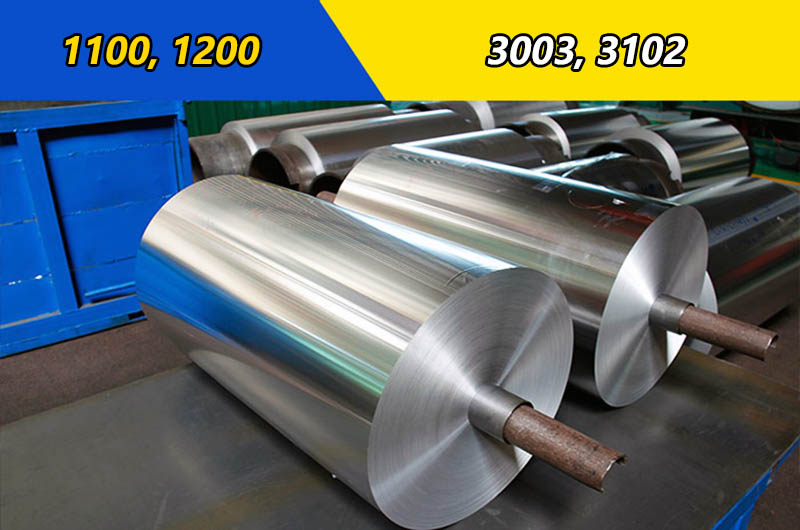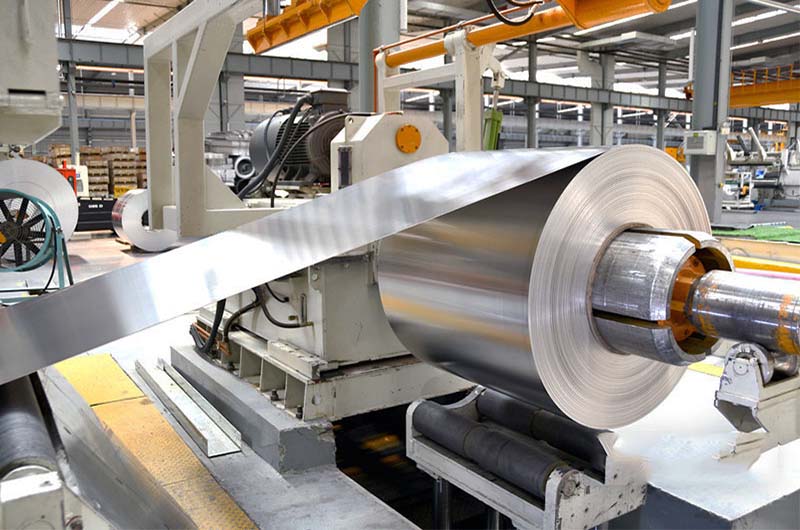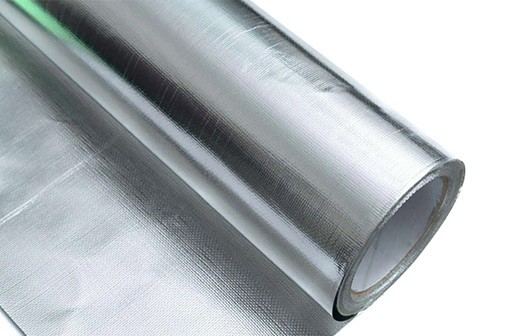- Composition of air conditioning aluminum foil
- Advantages of air conditioning aluminum foil
- Application of air conditioning aluminum foil
Composition of air conditioning aluminum foil
1. Aluminum alloy
The main component of air conditioning aluminum foil is aluminum, a lightweight and corrosion-resistant metal. Aluminum foil is usually manufactured from an aluminum alloy in sheet form. The choice of alloy is crucial as it affects the mechanical strength, corrosion resistance and thermal conductivity of the foil.
In the HVAC (heating, ventilation and air conditioning) industry, the specific alloys chosen for the manufacture of aluminum foil are usually the 1xxx or 3xxx series.
1xxx series:
- Examples include 1100 and 1200 alloys.
- These alloys are known for their high purity, excellent formability and corrosion resistance.
- They are typically used in applications where high corrosion resistance is required and structural strength is less important.
3xxx series:
- Examples include 3003 and 3102 alloys.
- These alloys are characterized by medium strength and excellent corrosion resistance.
- They are widely used in the HVAC industry in applications such as heat exchanger components, air conditioning fins and evaporator coils.

2. Surface coating
To enhance the performance of foils, manufacturers often apply surface coatings. These coatings can include hydrophobic materials to repel water, preservatives to protect against environmental factors, and heat-reflective coatings to improve thermal performance. The choice of coating depends on the specific requirements of the air conditioning system.
3. Thickness and size
Air conditioner aluminum foil comes in a variety of thicknesses, from ultra-thin sheets to thicker varieties. Thickness selection depends on factors such as heat exchange requirements, space constraints and manufacturing considerations. Additionally, the dimensions of the foils can be varied to accommodate different components within the air conditioning system.
Advantages of air conditioning aluminum foil
1. Thermal conductivity
One of the main advantages of aluminum foil in air conditioning systems is its high thermal conductivity. This property allows the foil to efficiently transfer heat between the air and the refrigerant, thus aiding in the overall cooling process. The use of aluminum foil facilitates fast and efficient heat exchange, thereby increasing energy efficiency.
2. Lightweight nature
Aluminum is known for its lightweight properties, making it an ideal choice for air conditioning components. The use of aluminum foil reduces the overall weight of the system, reduces the load on the supporting structure, and makes installation and maintenance more manageable. This lightweight property is especially important in industries where portability and ease of operation are important.
3. Corrosion resistance
Air conditioning systems operate in a variety of environments, including humid and corrosive conditions. Aluminum foil is inherently corrosion-resistant due to the thin oxide layer formed on its surface. This corrosion resistance ensures the longevity of air conditioning components, reducing the need for frequent replacement and maintenance.
4. Flexibility and formability
The ductility and formability of aluminum foil allow complex designs and shapes to meet the specific requirements of different air conditioning components. This design flexibility increases the efficiency of the heat exchange surfaces, helping to improve the overall performance of the system.
5. Reflectivity
Some air conditioner aluminum foils are treated with a reflective coating to enhance their ability to reflect radiant heat. This reflective property reduces heat absorption, thereby lowering the overall temperature within the system. This has proven particularly beneficial in climates with high solar radiation, helping to save energy and improve cooling efficiency.
6. Recyclability
In an era focused on sustainable practices, aluminum's recyclability is a significant advantage. Air conditioner aluminum foil is typically manufactured using recycled materials and is fully recyclable at the end of its life cycle. This is consistent with the HVAC (heating, ventilation and air conditioning) industry’s growing focus on environmentally friendly solutions.

Application of air conditioning aluminum foil
1. Evaporator and condenser coils
Air conditioning aluminum foil is widely used in the manufacture of evaporator and condenser coils. These coils are an integral part of the refrigeration cycle, and the heat exchange efficiency of these coils directly affects the overall performance of the air conditioning system.
2. Air duct
Aluminum foil is also used to make air ducts, which are responsible for distributing conditioned air throughout the building. The lightweight nature of foil makes it an ideal material for constructing ductwork, ensuring easy installation and minimizing loads on the structure.
3. Insulation
In addition to its heat exchange role, aluminum foil is often incorporated into the insulation materials used in air conditioning systems. The reflective properties of the foil contribute to the insulation's ability to resist heat transfer, thereby maintaining the desired temperature within the system.
Air conditioning aluminum foil's unique combination of thermal conductivity, lightness, corrosion resistance and recyclability makes it an indispensable material in the industry. As technology continues to evolve, the future offers exciting possibilities for further innovation in aluminum foil for air conditioning, ensuring our pursuit of comfort remains efficient and sustainable.
Informations you may be interested in:
- Which is better, hydrophilic aluminum foil or copper foil for air conditioners
- Hydrophilic aluminum foil vs non-hydrophilic aluminum foil
- Solutions to hydrophilic aluminum foil problems
- What is Hydrophilic Aluminum Foil?
- Hydrophilic aluminum foil performance indicators
- Factors Affecting the Hydrophilicity of Hydrophilic Aluminum Foil
- What components in air conditioning systems use aluminum foil?
- How is aluminum foil used for thermal insulation in air conditioning systems?
- Can aluminum foil be used in outdoor air conditioning units?
- Comprehensive analysis of air conditioning aluminum foil: classification and applications


